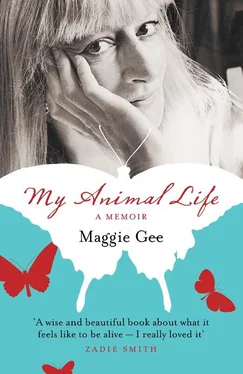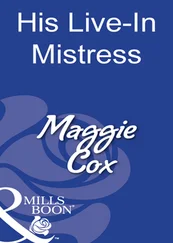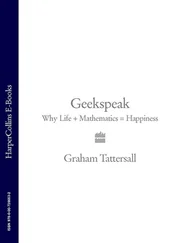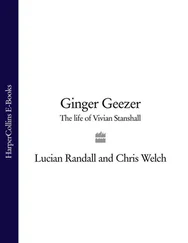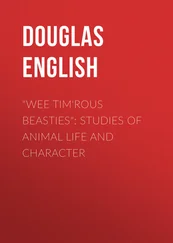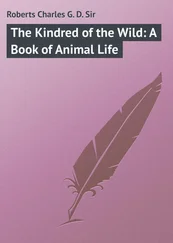Then there was the dead sheep we found on a walk. It was spring, we were wrapped up warm, but the sheep, which lay sprawled on its side by the path, had a buzzing retinue of flies above it. As usual we children had run on ahead. ‘Mum, Dad, look, it’s a sheep!’ I was off the path, as excited as Tess. Only a few broken strands of barbed wire lay between me and my love object. ‘Get back!’ my dad commanded. ‘Get right away from there, Margaret!’ ‘But I wanter see!’ I whined, thwarted. ‘It’s DEAD, Daddy! I wanter see it!’ Instead we children were hurried away. I suppose they were frightened of whatever killed the sheep, rabies, scrapie, foot and mouth, and besides, my father had his pathological horror of death. But because we were forbidden to look at it, the image of the dead thing burned into my mind.
Animals in the human world often seemed sad. We did get a hamster; naturally, it died. Still living at Bromsgrove, so I must have been around five, my parents took me to the circus for a treat. I only remember the menagerie, which we went to afterwards, in a big, dark tent. Hopeless beasts lay about in the shadows. The smell of urine was fierce and rank. My father and mother were indignant, so I copied them. ‘Maggie Gee, Animal Rights.’
Yet my father, who tended to stock positions which he cleaved to with moralising passion, disapproved of emotional views of animals. ‘Some people like animals more than humans. Some people like animals more than children!’ He was outraged at this lack of humanity. Socialists often feel like this. His position seemed to me unquestionable, and as children do, I adopted it myself. I was very slow to find a way of thinking not wholly centred in my own species. But perhaps I wasn’t as slow as all that, because many people cannot bear to sustain the loss of pride involved in knowing we are ‘just animals’.
When did I start to see it was true? I think I was probably around forty. My body, which I loved, had failed me by beginning on a series of miscarriages. I saw my will and my hope, both unlimited, were tethered to my mortal, animal body. ‘Today’s women want it all,’ crowed the magazines of the ’80s and ’90s, though the claim had already begun to sound hollow, ‘you can have it all, you can have it now.’ This siren song was a lie, of course. Because only a very few, very lucky, women have more than one child after forty.
Biology is unmoved by our rights, unaffected by women’s changing hopes and dreams. My eggs had been ageing like any chimpanzee’s while I followed my glad little human trajectory of ambition, and then came the belated realisation that I longed for something outside myself. We wanted a baby. No, we wanted two babies. But the Fates came in and stared at me, hard, three frightening old women I might one day become, wielding their terrible steel scissors and thread, as the surgeons did who performed the D and Cs that tidied me up each time things went wrong. The Fates were in the gaze of the implacable nurse who came and bent over the bed where I cried silently in hospital after the operation. ‘This is nothing,’ she said, her eyes sharp with dislike. ‘Miscarriage is common. Get over it.’
You can’t have everything , the Parcae hissed, bearing down on me with furious eyes. I had flouted them, and I would be punished. You never understood. You left it too late. You aren’t special, you’re an animal .
I have always been slow to understand the big things. Quick at small things, with a slick grasp of logic, but slow at seeing the things that matter. So I didn’t start to see I had a body at the stage when it might have been expected. At puberty, say. Or when I became sexual.
In any case the latter thing was somewhat delayed by my going to a traditional girls’ grammar school, where you did not have to think about boys — indeed I was puzzled by the minority of girls who queued up to titivate in the cloakroom mirror: what were they so passionate about? I simply did not, at that age, get it, for my body was disconnected from my mind. Which from infants’ school had nurtured bedtime fantasies of being kidnapped by bold boys on horseback, pressed against a wall and then what?
Nothing. I had no idea. The dream petered out and I went to sleep.
Not even when I had my first shy experience, aged sixteen, while acting in a play, Jonson’s The Alchemist . I wore a beautiful pale gold satin dress sewn with paste jewels, which showed my bust, and was told (thank God. I was too naïve to think of it myself) not to wear my winged Edna Everage glasses. Playing against me was eighteen-year-old Frank Lammas, a sturdy farm boy with a soft Sussex burr, dark eyes, glossy thick hair like a blackbird’s wing, and a motorbike. A motorbike! I would never have dared aspire to Frank Lammas, but somehow (perhaps it was the removal of my glasses) Frank Lammas saw something sensual in the woman I played. Frank began stroking and caressing my hands, tender, intimate, sweetest of touches, and his kisses became, not stage kisses, but real. Nothing so good had ever happened to me. When we weren’t acting, only little looks and smiles showed that the impossible was true: beautiful Frank Lammas fancied me. Since he was in the sixth form at my father’s school, nothing more daring was ever going to happen, and my father was already becoming suspicious. After the final performance, Frank Lammas offered me a lift on his motorbike, at twenty miles per hour, just around the school car park, and then this happy chapter of my life was over. But thank you, dear Frank, for seeing the woman in me. Your sunlight touched me. I could grow towards it.
I have always loved, and enjoyed, my body, though I didn’t listen to what it told me. I liked being able to run and climb. I approved of my body; it did what it should. I had to be a tomboy, to be like my brothers, but I also remember distinctly, aged thirteen, looking in the mirror and seeing new breasts above my ribcage. Yes, I thought smugly, just as I expected, they are coming out perfectly, as they would (later, of course, I would learn, through pain, that the body I loved was imperfect, frangible). I enjoyed, above all, the sensation of speed, for I had always been a good runner, which translated, with age, into being a sprinter, a skill which stood me in good stead at school. The very children who tormented me gave me a half-admiring nickname: ‘MG Fast Car’, said as all one word, because I could get away from them, and I often had to, on the way home, as they pursued me, half-serious, down the church path. I preferred it so much to ‘Gee-gee’, or the worst name of all, ‘Dobbin’s daughter’, which cut me to the quick because it meant my father, Mr Gee the secondary school headmaster, was secretly called ‘Dobbin’ by my classmates’ elder brothers. ‘MG-Fast-Car’ was expensive, racy.
Being able to run got me grudging respect, whereas doing well at lessons caused only hatred, in that village school in Billingshurst where out of forty-three children in Mr Upton’s class, only ‘me and Ivor Laker’ passed the eleven plus and got into grammar school. But everyone had bodies. Everyone did sport.
Both my parents had been athletic, my father a footballer and middle distance runner, my mother a sprinter, hurdler, hockey-player, with the result that they became perhaps too involved in my success as a teenage athlete. But races can only have one winner. Mostly I did win my races at school, and in my fourth year at grammar school, just before I gave up, amassed the most points on Sports Day, as both of them had in the days when this honour was called victor, or victrix, ludorum. I competed as a junior for my county: won some small medals, their silver now grey, with the blue Sussex shield blazoned with small yellow birds. Trained, for a while, with Brighton Ladies Athletic club, in shocking pink tops and streamlined black satin shorts, and won, on one glorious day in London, the hundred metres at a big inter-club meet. (I came back and told Grandpa Gee, the former sprinter, now buckled by a stroke, strapped into black, built-up, surgical boots, and living with us as he struggled back to fitness, only to suffer another stroke. He laughed with joy. Margaret had trounced the Londoners! ‘Well done girl! That showed them.’ That day I was his granddaughter as never before.)
Читать дальше
